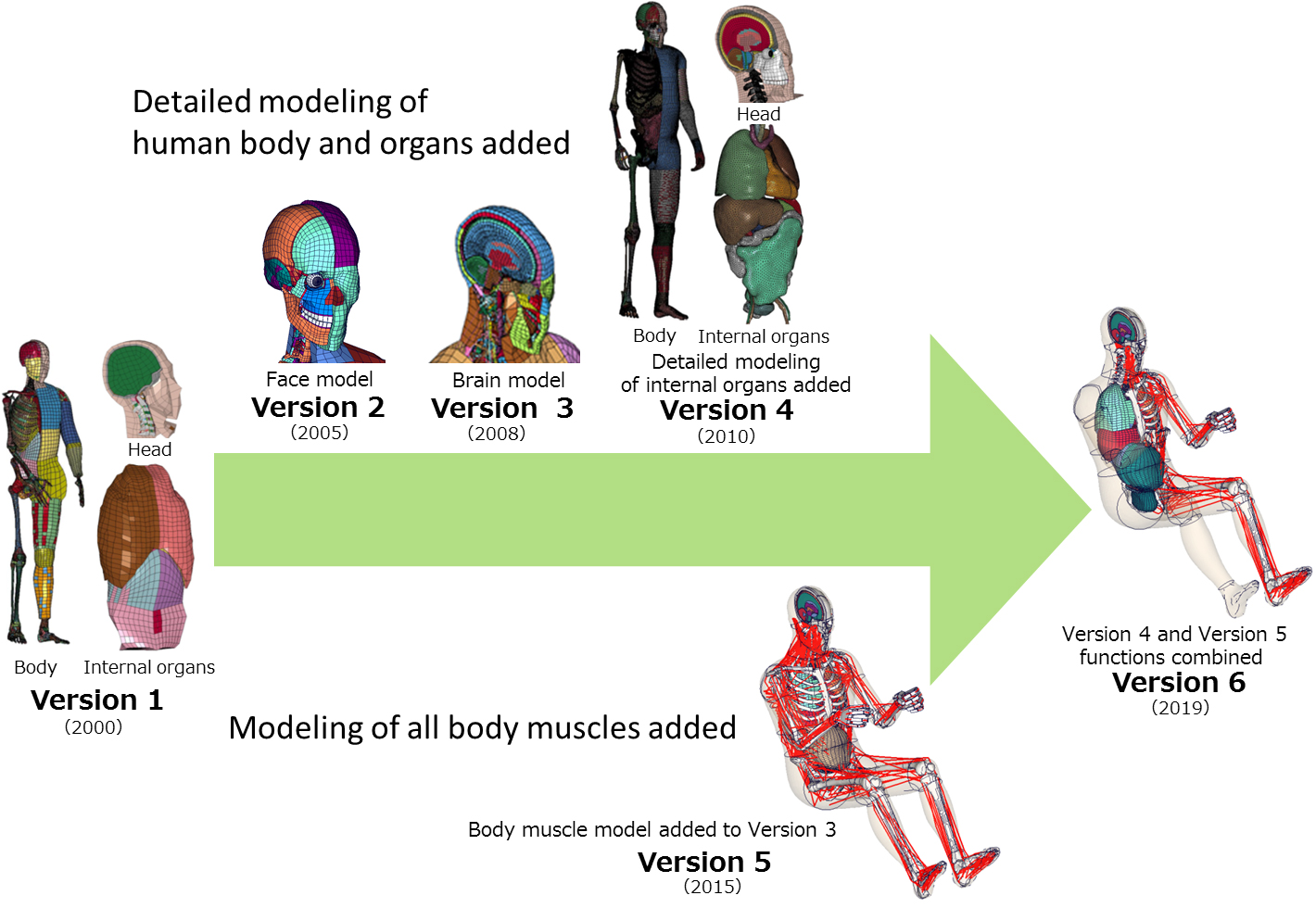Toyota has released the sixth version of its THUMS (Total Human Model for Safety) virtual crash test dummy software.
The new software features internal organ modeling and a new muscle model that can simulate different human postures, including, braced and relaxed, anticipating the different ways people will sit in vehicles as more automated systems are introduced.
Toyota Motor Corporation and Toyota Central R&D Labs have researched and developed THUMS for more than 20 years, producing accurate computer simulations of human body injuries caused by a range of different vehicle collisions.
The software is available for purchase and has been used by Toyota, other vehicle and parts manufacturers, universities and research bodies to help develop new and more effective vehicle safety technologies.
THUMS Version 5 simulates changes in occupant posture, taking into account changes in muscle state prior to a collision, while Version 4 accurately analyzes injuries to bones and internal organs at the point of collision.
Previously, researchers wanting to simulate both these scenarios were required to use both these software versions; the new Version 6 combines the content so work can be carried out efficiently and with a high degree of accuracy.
As preventive safety features become more common, alongside the deployment of new automated driving technologies, it’s expected that vehicle occupants will assume a wider variety of postures at the point of a collision. In particular, driving support functions may result in drivers being more relaxed.
Toyota intends to use THUMS to help research and develop new methods of protecting both drivers and vehicle passengers.





